10 Key Reasons for Global Marijuana Legalization
The debate over marijuana legalization is far from a puff of smoke – it’s a raging fire that’s lighting up political, economic, and social discussions worldwide.
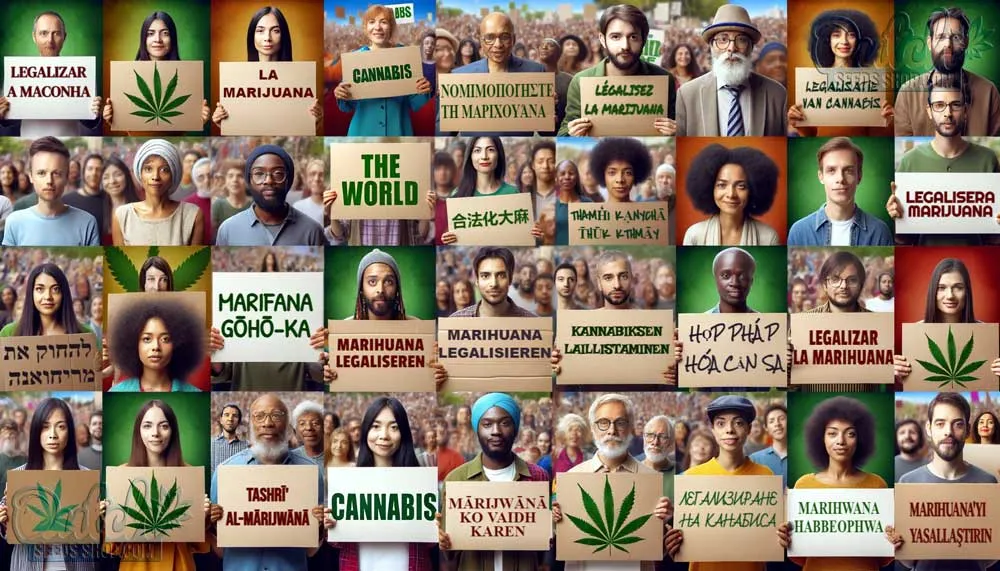
While some countries have already taken steps to legalize cannabis, many are still tangled in the weeds of prohibition.
The legalization journey is intricate, but the growing body of evidence supporting the myriad benefits of marijuana is hard to ignore.
From the potential for economic prosperity to the undeniable health advantages, the pros are stacking up, tipping the scales in favor of making marijuana legal on a global scale.
Key Takeaways:
- Legalizing cannabis offers significant economic benefits, including boosted tax revenue and job creation.
- Marijuana serves as an effective pain reliever and could be a solution to the opioid crisis.
- Cannabis has proven medicinal benefits, notably in treating epilepsy and mental health conditions.
- Cancer patients can find symptom relief through cannabis, which also contributes to cancer research funding.
- Environmentally sustainable cannabis cultivation can replace harmful illegal growing practices.
- Racial disparities in cannabis arrests highlight the need for legalization as a social justice issue.
- Overwhelming public support for cannabis legalization calls for legislative change.
- Regulation ensures that legalized cannabis doesn’t increase youth consumption.
- The failure of prohibition policies makes a compelling case for a regulated cannabis market.
- Marijuana legalization aligns with principles of personal freedom and individual autonomy.
Economic Advantages
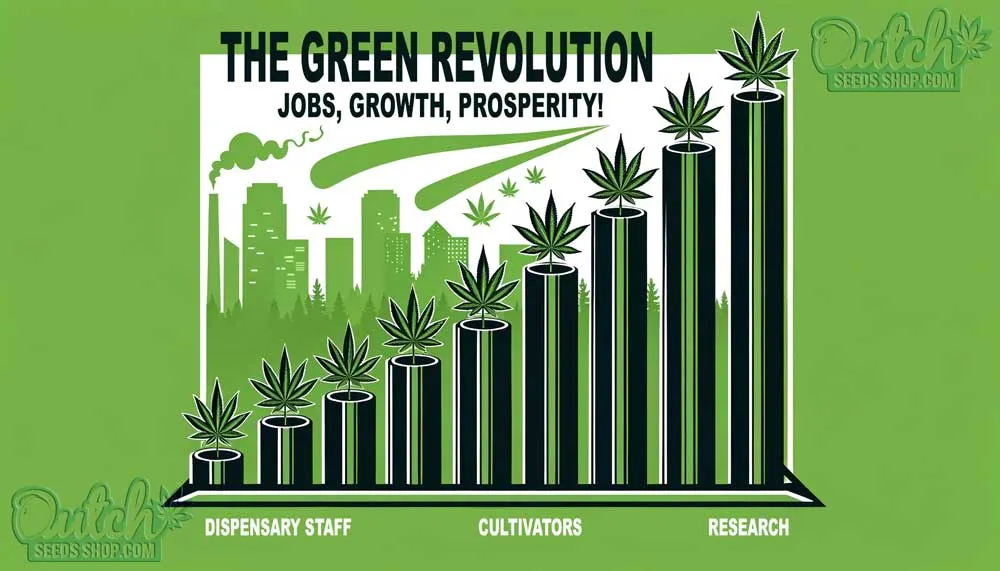
Boost in Tax Revenue
When it comes to economic advantages, legalizing cannabis is akin to striking black gold.
In states where marijuana has been legalized, like Colorado and Washington, the revenue generated from taxing cannabis products has been nothing short of a fiscal windfall.
Let’s look at Washington State: in 2020 alone, cannabis sales taxes raked in a whopping $600 million.
That’s some serious green, and we’re not just talking about the plant!
- Sales Tax
- Business Licenses
- Property Tax from Dispensaries
The revenue isn’t just a number – it’s a lifeline for public projects.
Think about the crumbling schools that could be renovated or the underfunded health programs that could receive a cash injection.
The tax revenue from cannabis sales could fuel positive change in multiple sectors, including education, health, and infrastructure.
Job Creation
The cannabis industry isn’t just growing plants; it’s growing jobs – a lot of them.
From cultivators to retailers, the job market within the cannabis sector is as diverse as the strains it offers.
In states that have legalized marijuana, the employment boom has been evident.
We’re talking about high-quality jobs that come with benefits and competitive salaries.
- Dispensary Staff
- Cultivators
- Transport
- Security
- Research and Development
In a time when the economy is often on shaky ground, the cannabis industry stands as a robust and resilient field, capable of providing stable employment opportunities.
So when critics argue against legalization, they’re not just fighting a plant; they’re resisting an economic revolution.
Health Benefits
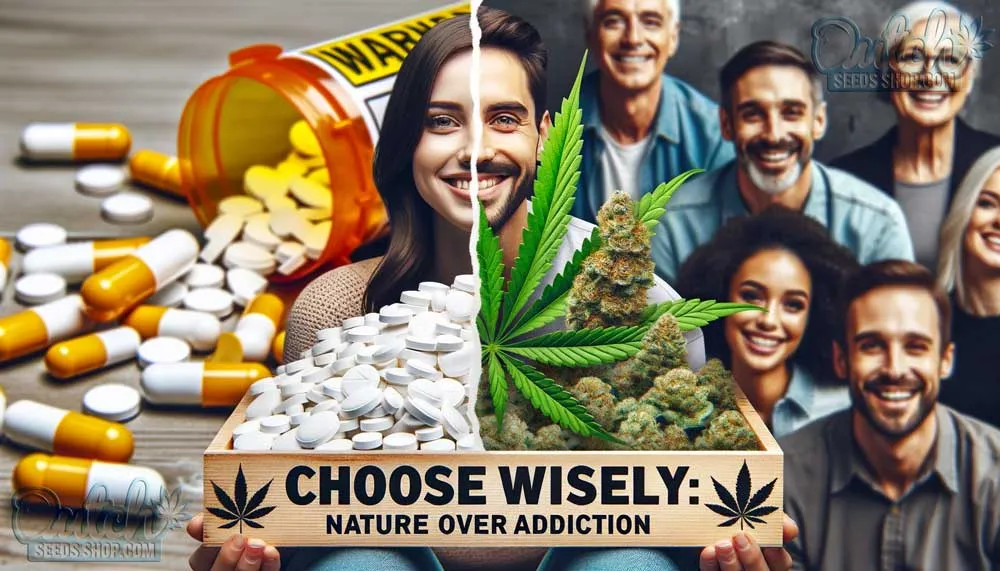
Pain Management
Let’s cut to the chase: marijuana is a pain management powerhouse.
For those who’ve been shackled by chronic pain, cannabis offers a much-needed escape.
The plant has been particularly effective for conditions like arthritis and migraine, offering relief that is often superior to conventional medications.
- Arthritis
- Migraine
- Fibromyalgia
- Endometriosis
Beyond just numbing the pain, marijuana improves the quality of life for patients.
It allows people to engage in everyday activities without the constant agony, giving them a chance to live a more normal life.
In a world where opioid addiction is rampant, marijuana stands as a safer alternative for pain relief.
Reduced Opioid Crisis
Speaking of opioids, let’s talk about one of the most pressing health crises of our time.
States that have legalized marijuana have seen a significant decrease in opioid prescriptions and related deaths.
The correlation is hard to ignore.
Cannabis offers a natural and less addictive alternative for pain management, reducing the reliance on dangerous opioids.
By offering an alternative, marijuana is essentially saving lives, chipping away at the towering opioid crisis.
The substance provides a safe and effective option for those who have been let down by the risks and side effects of opioids.
Medicinal Use
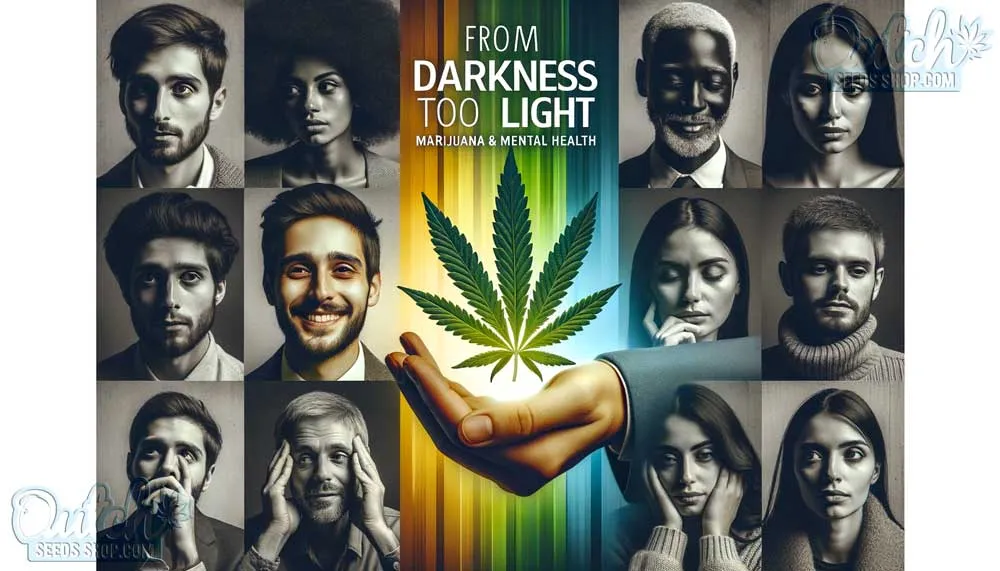
Epilepsy Treatment
When it comes to treating epilepsy, CBD, a non-psychoactive component of cannabis, has been a game-changer.
Clinical trials and anecdotal evidence point to a significant reduction in seizure frequency when CBD is introduced.
- Less frequent seizures
- Lower medication costs
- Improved quality of life
Beyond controlling seizures, CBD enhances the overall well-being of epilepsy patients.
It’s not just about reducing the number of seizures; it’s about elevating the quality of life, offering a semblance of normalcy that many thought was unattainable.
Mental Health Benefits
In an age of escalating mental health issues, marijuana offers a glimmer of hope.
The plant has shown promise in treating a range of conditions, from anxiety to depression and even PTSD.
- Anxiety
- Depression
- PTSD
- Stress
The cannabinoids in marijuana interact with the endocannabinoid system in the human body, stabilizing mood and inducing a calming effect.
So, the next time someone dismisses marijuana as just a recreational drug, remember that it’s also a mental health ally.
Cancer Care
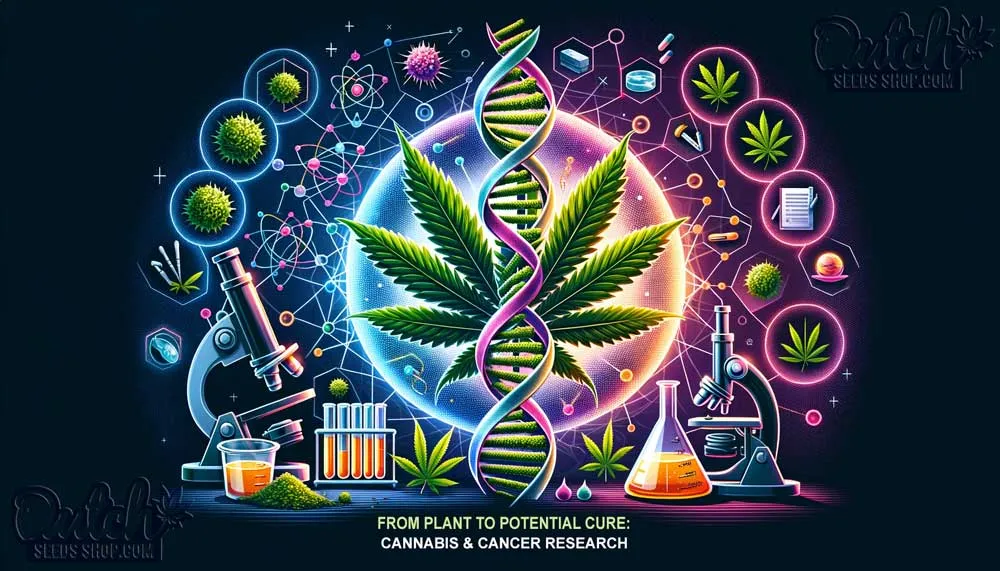
Cancer Patients Support
Navigating through cancer is an uphill battle, but marijuana offers some solace.
From managing nausea induced by chemotherapy to increasing appetite, cannabis provides multifaceted support to cancer patients.
- Nausea and Vomiting
- Pain
- Loss of appetite
- Insomnia
In fact, specific cannabinoids have even shown promise in slowing down the growth of certain types of cancer cells, providing not just symptomatic relief but also a potential avenue for future cancer treatments.
Economic Contribution
The cannabis industry isn’t just about rolling up and smoking; it’s rolling up its sleeves to contribute to cancer research.
A portion of the revenue generated from legal cannabis could be channeled into research grants, fostering studies that could one day lead to a cure for cancer.
The industry is ripe for partnerships with research institutions, creating a win-win situation for all involved.
Environmental Friendliness
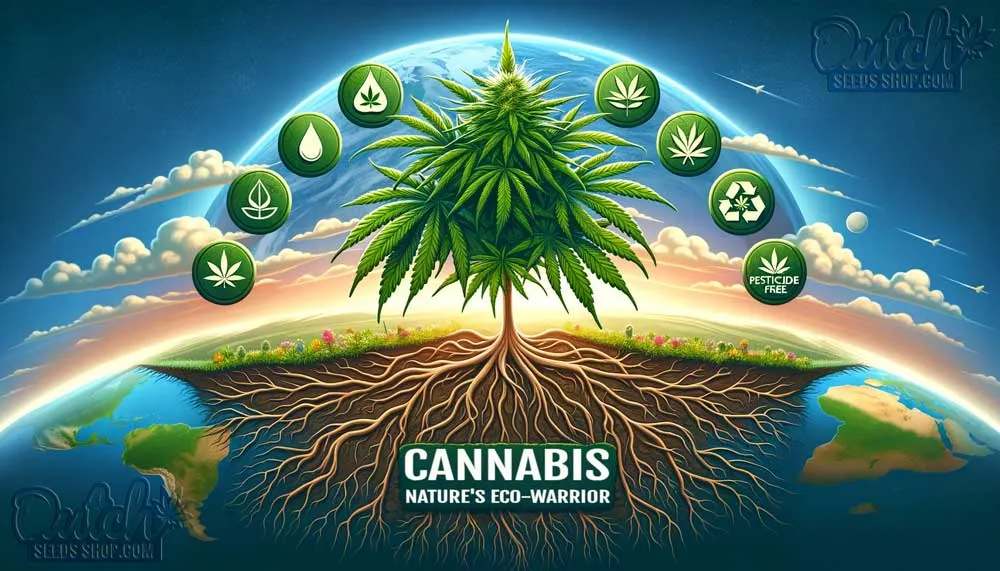
Sustainable Cultivation
When it comes to environmental sustainability, cannabis cultivation is ahead of the curve.
Unlike water-guzzling crops like cotton, cannabis is relatively low-maintenance, requiring less water and fewer pesticides.
| Crop | Water Usage | Pesticides |
| Marijuana | Low | Minimal |
| Cotton | High | Extensive |
| Corn | Moderate | Moderate |
The eco-friendly nature of cannabis farming is an overlooked but crucial benefit, particularly in an age when environmental conservation is paramount.
Reducing Harmful Practices
Legalization doesn’t just benefit human consumers; it benefits Mother Earth too.
The illegal growing operations, often run by criminal cartels, are notorious for their harmful environmental practices.
Legalization brings cannabis cultivation into the light, ensuring it adheres to environmental regulations, thereby reducing deforestation, waterway contamination, and uncontrolled pesticide use.
Racial Equity
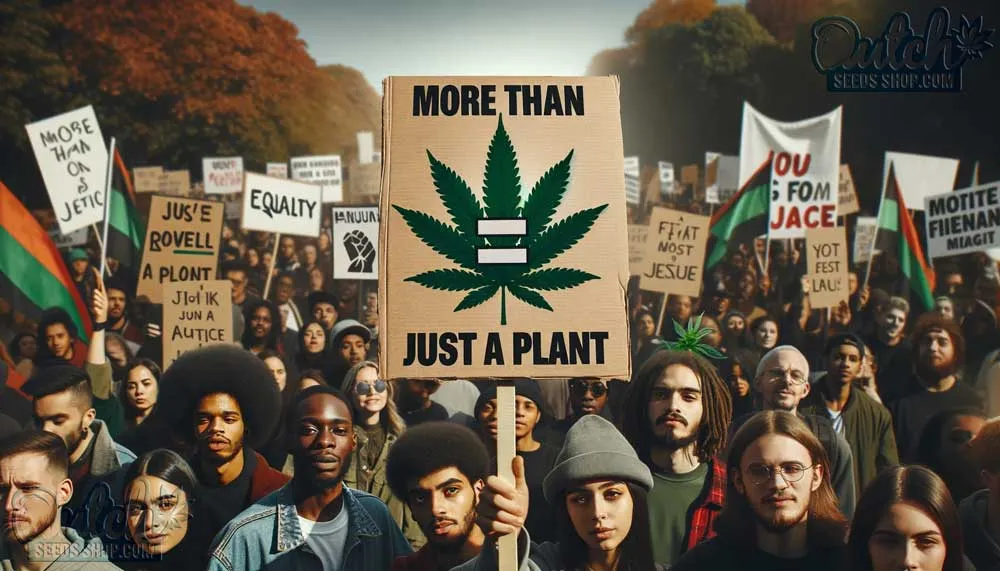
Ending Racial Disparities
Racial disparities in drug arrests are a blatant stain on the justice system.
The so-called war on drugs has disproportionately impacted communities of color, particularly Black and Hispanic populations.
African Americans are 3.5 times more likely to be arrested for marijuana possession than their white counterparts, despite similar usage rates across races.
When marijuana laws are racially biased, it’s not just an issue of legality; it’s an issue of civil rights.
These arrests often lead to criminal records that affect employment opportunities, housing eligibility, and even voting rights for minority communities.
Legalization can significantly reduce these racial disparities and offer a new path toward equality.
Social Justice
Legalizing marijuana isn’t just a matter of public health and economy; it’s a matter of social justice.
The enforcement of cannabis laws has often been a tool to suppress minority communities, perpetuating cycles of poverty and disenfranchisement.
By removing the legal barriers and expunging past records, we can take steps toward restoring justice and equality in marginalized communities.
This isn’t just about a plant; it’s about people’s lives.
Public Support
Public Opinion
Let’s face it; the tides have turned.
Public opinion has shifted dramatically in favor of legalizing cannabis.
Data shows that 68% of Americans are in favor, and over 45% of the global population supports full marijuana legalization.
- 68% of Americans support legalization
- 45% of the global population supports full legalization
- Majority of voters in Western countries favor legalization
The numbers don’t lie, but they also don’t act on their own.
It’s up to lawmakers to translate this overwhelming public support into meaningful legislative change.
Democratic Choice
In a democratic society, the will of the people should guide policy.
When such a large percentage of the population is in favor of cannabis legalization, ignoring this majority opinion becomes a democratic failing.
Public support isn’t just a number; it’s a mandate for change that lawmakers should not ignore.
Youth and Consumption
Impact on Youth
One of the biggest concerns about marijuana legalization is youth access.
However, the fear that legalization will turn our kids into potheads is largely unfounded.
In fact, regulated markets have stringent ID checks and age restrictions, making it harder for youth to get their hands on marijuana compared to, say, alcohol.
Contrary to popular belief, marijuana legalization doesn’t encourage underage consumption.
If anything, regulation ensures that only adults have legal access to cannabis, thereby safeguarding the youth.
Evidence of Regulation
Let’s look at the states where marijuana is legal.
Places like Colorado have implemented youth prevention programs and guess what? They haven’t seen a spike in youth consumption post-legalization.
So, the claim that legalization would lead to increased use among young people? Debunked.
Regulation works, and the proof is in the legalized pudding.
Prohibition’s Failure
Historical Context
History has a funny way of repeating itself, and the marijuana prohibition is eerily reminiscent of the alcohol prohibition era.
Both have proven to be monumental failures, costing not just money but also lives.
Prohibition has never been effective; it’s been a drain on law enforcement resources and a catalyst for criminal activity.
Ineffectiveness
The War on Drugs is a war that nobody won.
It’s time to face the facts: prohibition simply doesn’t work.
It hasn’t reduced consumption; it’s only succeeded in criminalizing users and feeding a dangerous black market.
Shifting from prohibition to a regulated market would not only decriminalize use but also allow for quality control and consumer safety.
Personal Freedom
Autonomy and Responsibility
In a free society, personal freedom is paramount.
The notion that a government can dictate what a consenting adult puts into their own body is antithetical to the principles of liberty and autonomy.
Whether it’s for recreation or medical use, the choice to consume cannabis should be left to the individual.
Government Intrusion
The prohibition of cannabis isn’t just a legal issue; it’s a personal freedom issue.
Government intrusion into personal choices, especially those related to one’s own body, is an overreach that has no place in a free society.
The ban on marijuana is not just an outdated policy; it’s an infringement on individual freedoms.
Conclusion
So there you have it – 10 solid reasons why marijuana should be legalized globally.
From boosting the economy to advancing social justice, the benefits are clear.
It’s high time for a change.
About the Author
Share the Love:
